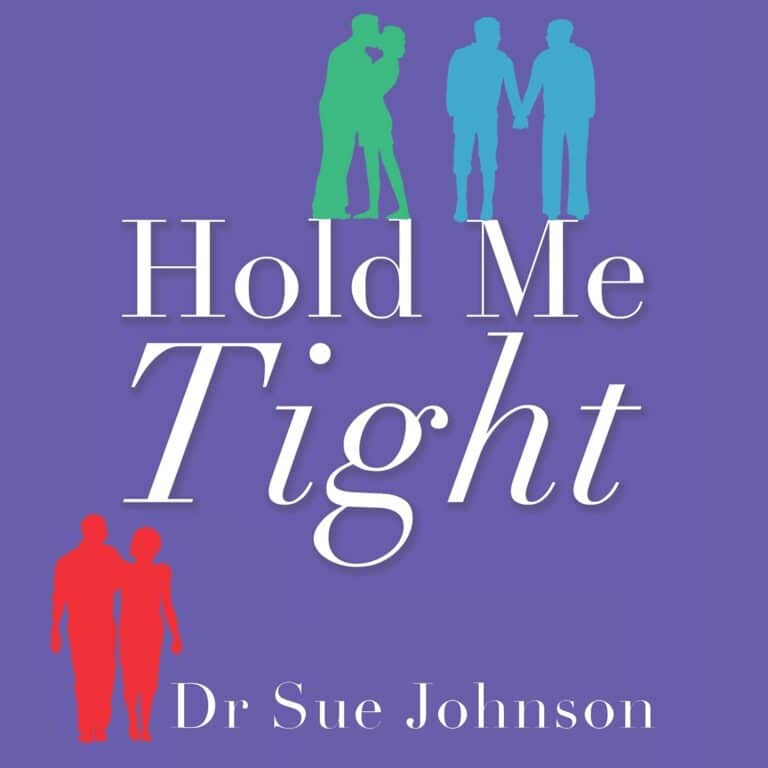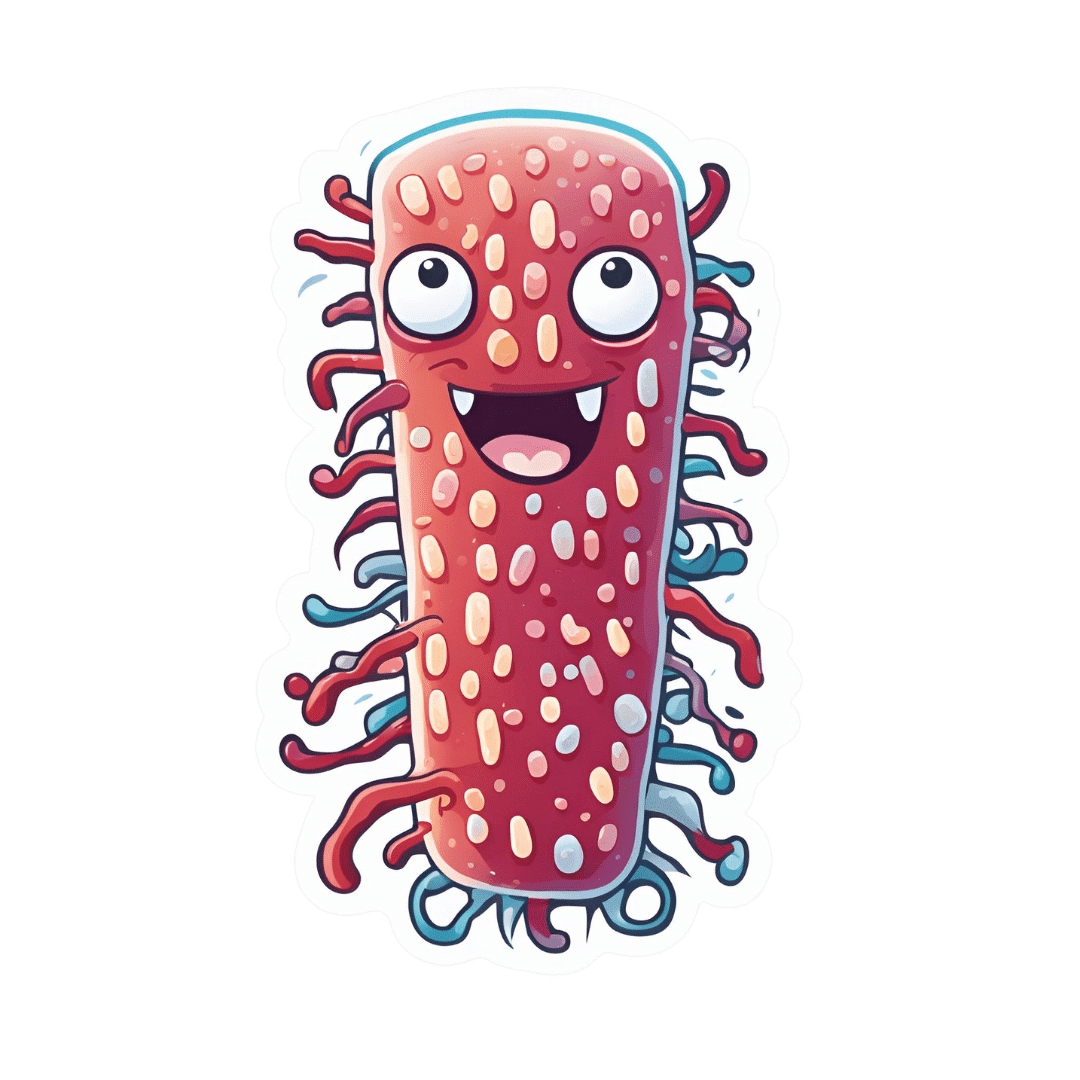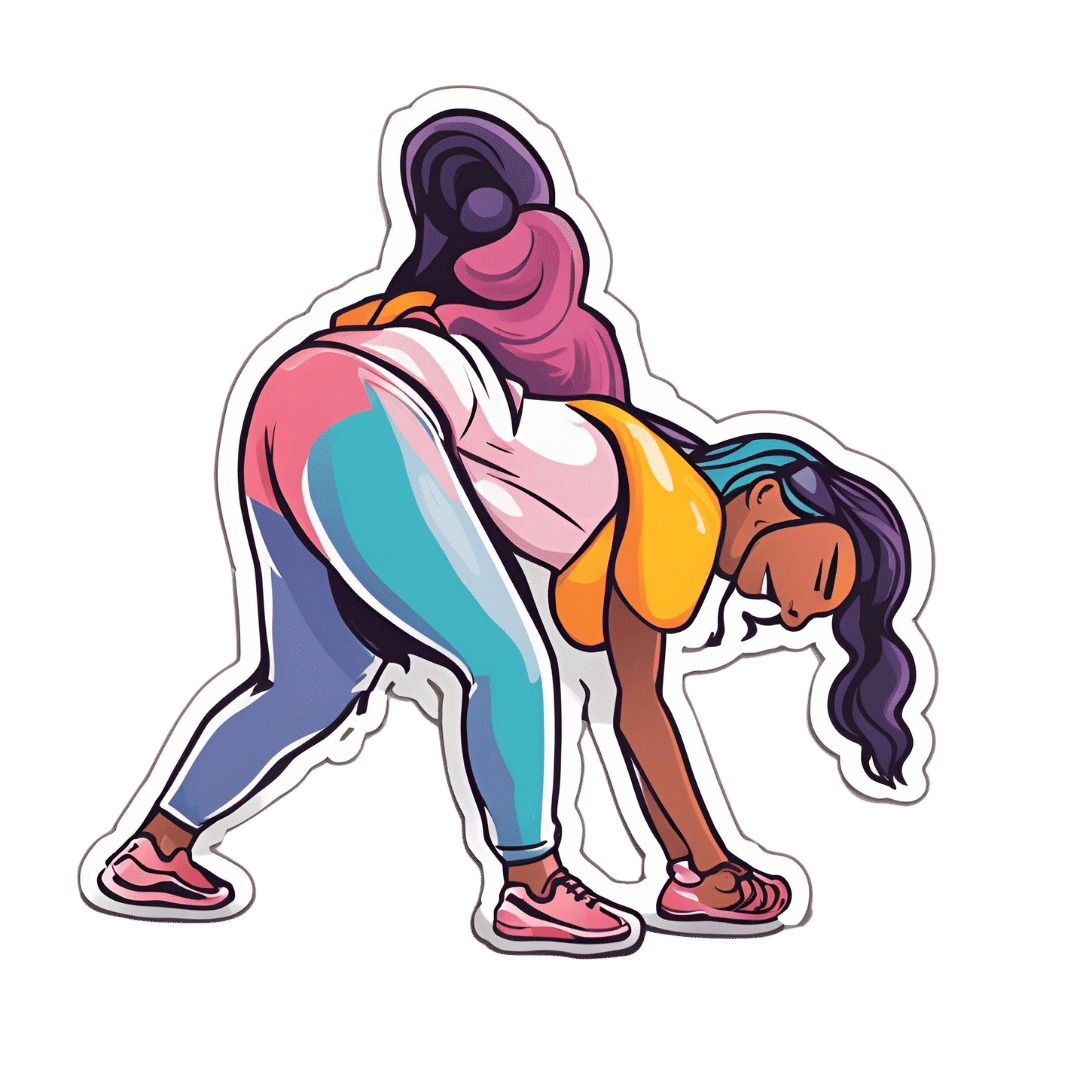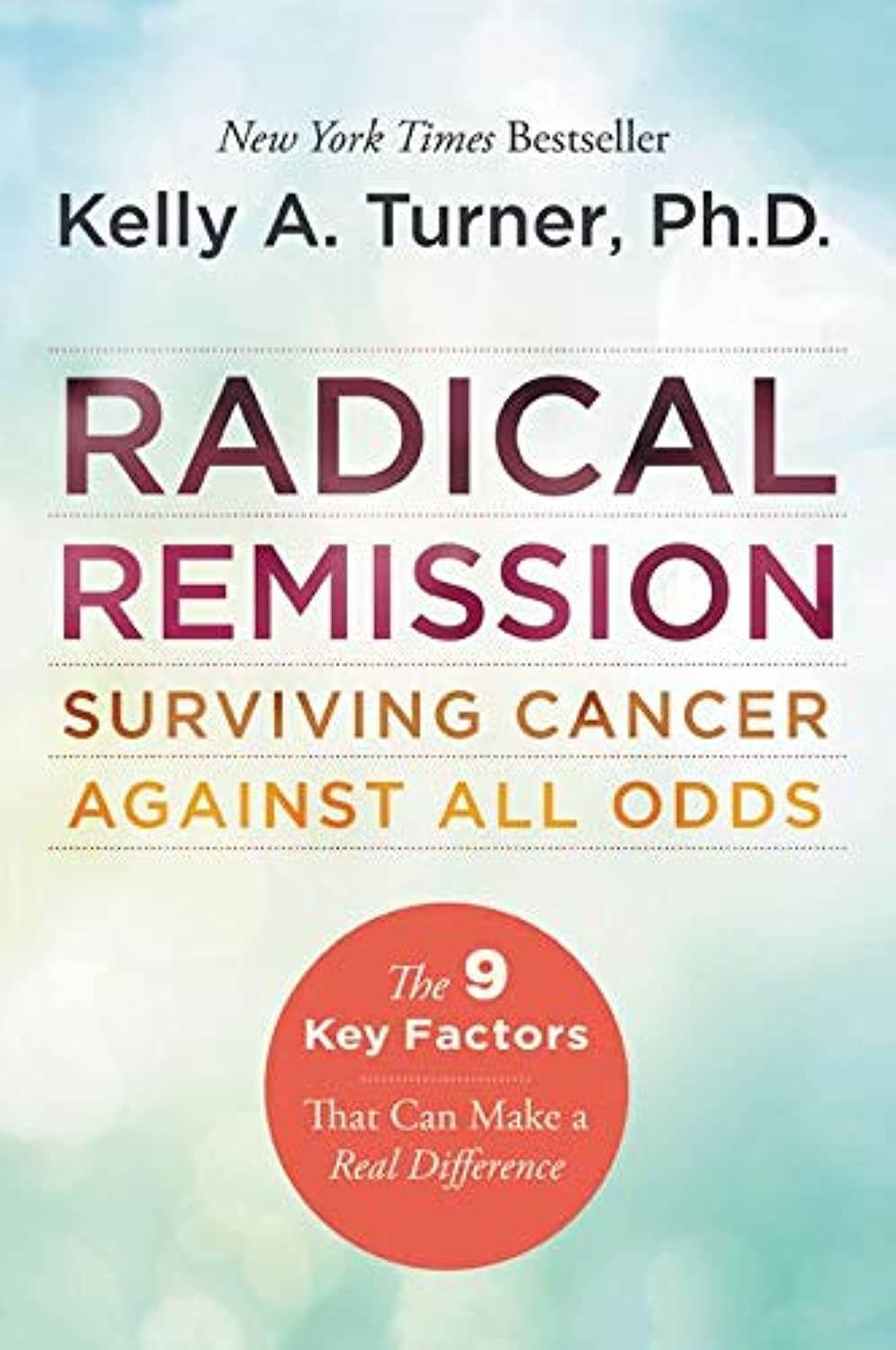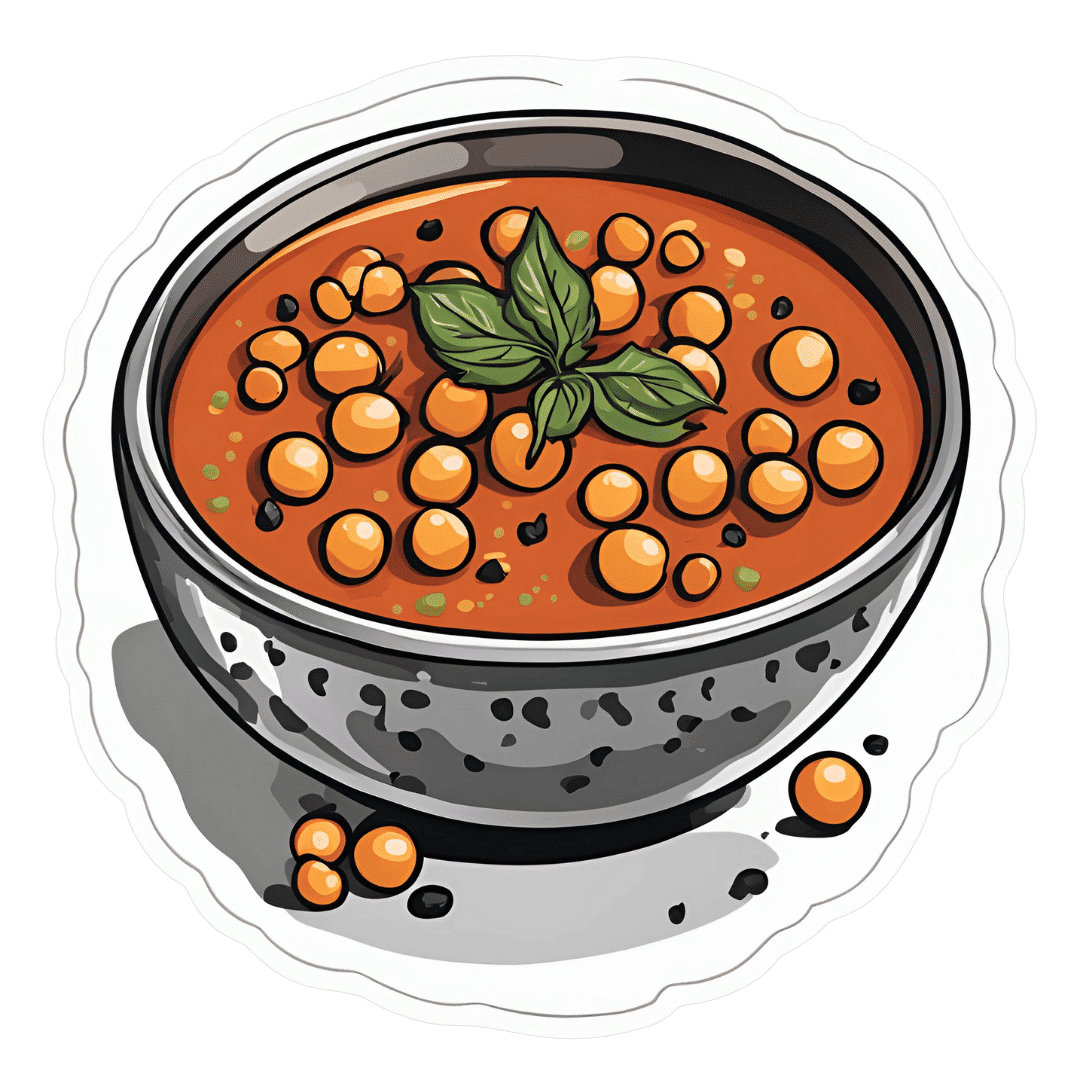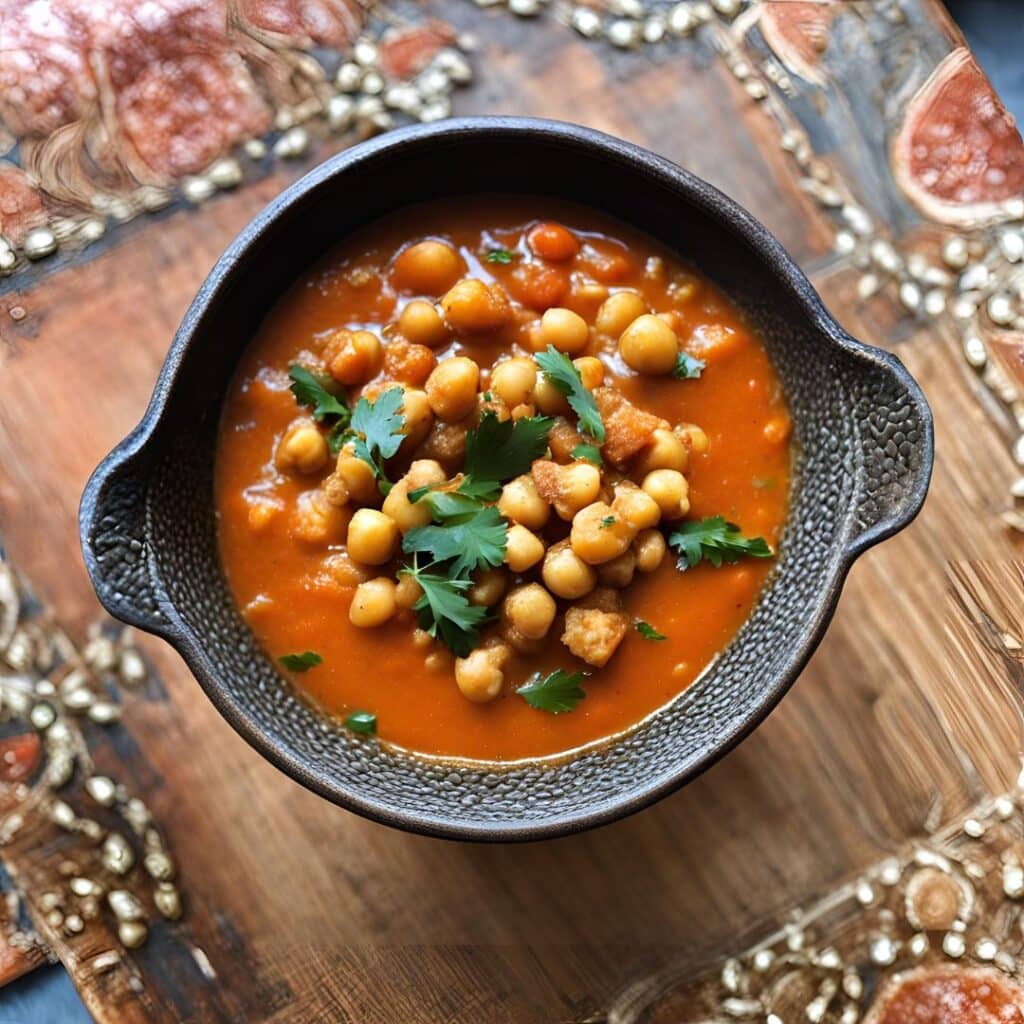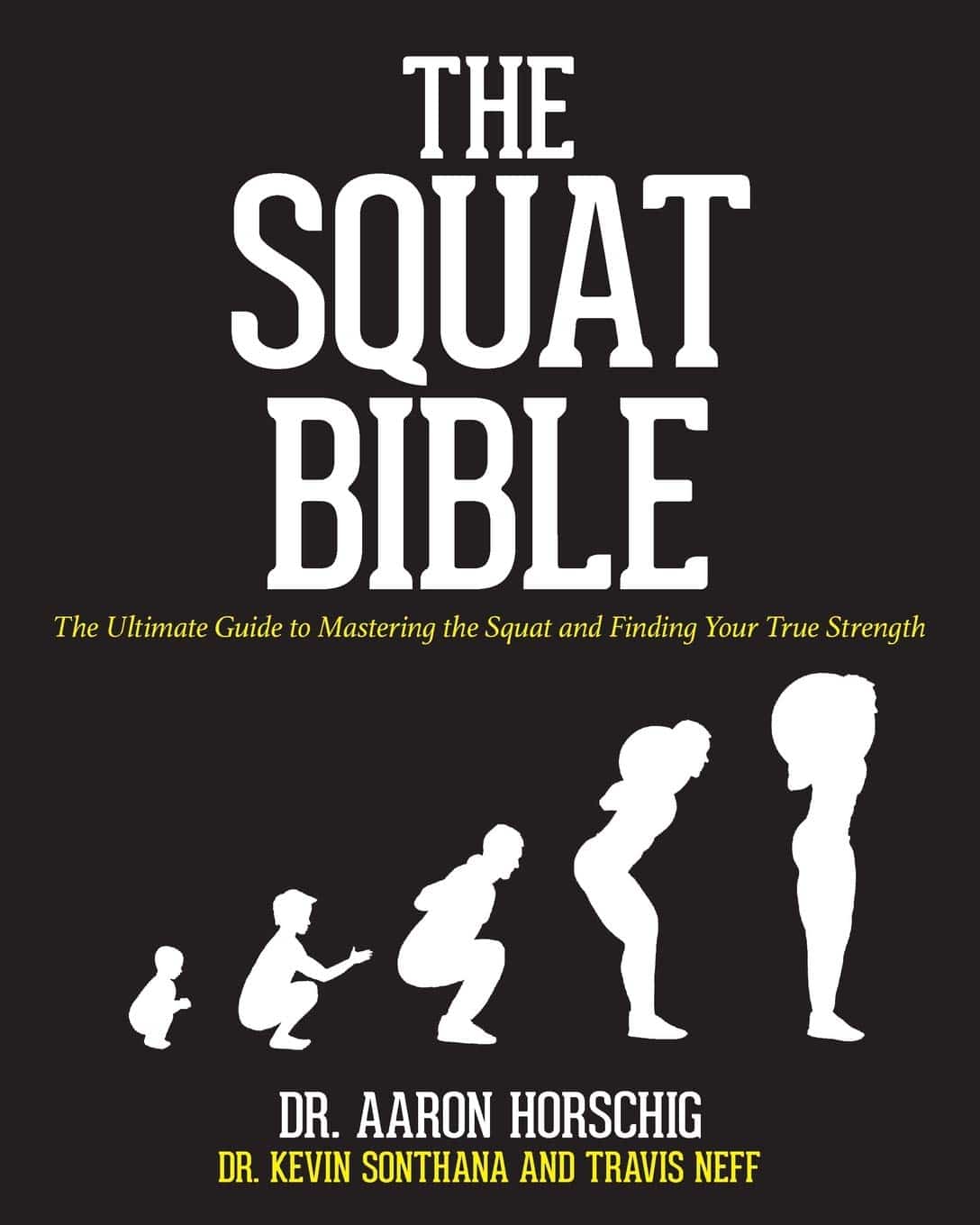
The Squat Bible – by Dr. Aaron Horschig
10almonds is reader-supported. We may, at no cost to you, receive a portion of sales if you purchase a product through a link in this article.
You probably know the following three things about squats:
- Squatting is great for the health in many ways
- There are many different ways to squat
- Not all of them are correct, and some may even do harm
Dr. Aaron Horschig makes the case for squats being a movement first, and an exercise second. To this end, he takes us on a joint-by-joint tour of the anatomy of squatting, so that we get it right from top to toe.
Or rather: from toe to top, since he starts with the best foundation.
What this means is that if you’ve struggled to squat because you find some discomfort in your ankles, or a weakness in the knees, or you can’t get your back quite right, Dr. Horschig will have a fix for you. He also takes a realistic look about how people’s anatomy varies from person to person, and what differences this makes to how we each should best squat.
The explanations are clear and so are the pictures—we recommend getting the color print edition (linked), as the image quality is better than the black and white and/or Kindle edition.
Bottom-line: squats are one of the single best exercises we can do for our health—but we can miss out on benefits (or even do ourselves harm) if we don’t do them well. This book is a comprehensive reference resource for making sure we get the most out of our squatting ability.
Click here to check out The Squat Bible, and master this all-important movement!
Don’t Forget…
Did you arrive here from our newsletter? Don’t forget to return to the email to continue learning!
Recommended
Learn to Age Gracefully
Join the 98k+ American women taking control of their health & aging with our 100% free (and fun!) daily emails:
-
Staying Sane In A Hyper-Connected World
10almonds is reader-supported. We may, at no cost to you, receive a portion of sales if you purchase a product through a link in this article.
Staying Sane In A Hyper-Connected World
There’s a war over there, a genocide in progress somewhere else, and another disease is ravaging the population of somewhere most Americans would struggle to point out on the map. Not only that, but that one politician is at it again, and sweeping wildfires are not doing climate change any favors.
To borrow an expression from Gen-Z…
“Oof”.
A Very Modern Mental Health Menace
For thousands of years, we have had wars and genocides and plagues and corrupt politicians and assorted major disasters. Dire circumstances are not new to us as a species. So what is new?
As some reactionary said during the dot-com boom, “the Internet doesn’t make people stupid; it just makes their stupidity more accessible”.
The same is true now of The Horrors™.
The Internet doesn’t, by and large, make the world worse. But what it does do is make the bad things much, much more accessible.
Understanding and empathy are not bad things, but watch out…
- When soldiers came home from the First World War, those who hadn’t been there had no conception of the horrors that had been endured. That made it harder for the survivors to get support. That was bad.
- Nowadays, while mass media covering horrors certainly doesn’t convey the half of it, even the half it does convey can be overwhelming. This is also bad.
The insidious part is: while people are subjectively reporting good physical/mental health, the reports of the symptoms of poor physical/mental health from the same population do not agree:
Stress in America 2023: A nation grappling with psychological impacts of collective trauma
Should we just not watch the news?
In principle that’s an option, but it’s difficult to avoid, unless you truly live under a rock, and also do not frequent any social media at all. And besides, isn’t it our duty as citizens of this world to stay informed? How else can we make informed choices?
Staying informed, mindfully
There are steps that can be taken to keep ourselves informed, while protecting our mental health:
- Choose your sources wisely. Primary sources (e.g. tweets and videos from people who are there) will usually be most authentic, but also most traumatizing. Dispassionate broadsheets may gloss over or misrepresent things more (something that can be countered a bit by reading an opposing view from a publication you hate on principle), but will offer more of an emotional buffer.
- Boundary your consumption of the news. Set a timer and avoid doomscrolling. Your phone (or other device) may help with this if you set a screentime limit per app where you consume that kind of media.
- Take (again, boundaried) time to reflect. If you don’t, your brain will keep grinding at it “like a fork in the garbage disposal”. Talking about your feelings on the topic with a trusted person is great; journaling is also a top-tier more private option.
- If you feel helpless, help. Taking even small actions to help in the face of suffering somewhere else (e.g. donating to relief funds, engaging in advocacy / hounding your government about it), can help alleviate feelings of anguish and helplessness. And of course, as a bonus, it actually helps in the real world too.
- When you relax, relax fully. Even critical care doctors need downtime, nobody can be “always on” without burning out. So whatever distracts and relaxes you completely, make sure to make time for that too.
Want to know more?
That’s all we have room for today, but you might like to check out:
- Distressing images and videos can take a toll on our mental health. How can we stay informed without being traumatised?
- PTSD expert on how to protect yourself and your kids from overexposure to war images from the Mideast
You also might like our previous main features:
- C-PTSD, And What To Do When Life Genuinely Sucks
- A Surprisingly Powerful Tool: Eye Movement Desensitization & Reprocessing
Take care!
Share This Post
-
Women and Minorities Bear the Brunt of Medical Misdiagnosis
10almonds is reader-supported. We may, at no cost to you, receive a portion of sales if you purchase a product through a link in this article.
Charity Watkins sensed something was deeply wrong when she experienced exhaustion after her daughter was born.
At times, Watkins, then 30, had to stop on the stairway to catch her breath. Her obstetrician said postpartum depression likely caused the weakness and fatigue. When Watkins, who is Black, complained of a cough, her doctor blamed the flu.
About eight weeks after delivery, Watkins thought she was having a heart attack, and her husband took her to the emergency room. After a 5½-hour wait in a North Carolina hospital, she returned home to nurse her baby without seeing a doctor.
When a physician finally examined Watkins three days later, he immediately noticed her legs and stomach were swollen, a sign that her body was retaining fluid. After a chest X-ray, the doctor diagnosed her with heart failure, a serious condition in which the heart becomes too weak to adequately pump oxygen-rich blood to organs throughout the body. Watkins spent two weeks in intensive care.
She said a cardiologist later told her, “We almost lost you.”
Watkins is among 12 million adults misdiagnosed every year in the U.S.
In a study published Jan. 8 in JAMA Internal Medicine, researchers found that nearly 1 in 4 hospital patients who died or were transferred to intensive care had experienced a diagnostic error. Nearly 18% of misdiagnosed patients were harmed or died.
In all, an estimated 795,000 patients a year die or are permanently disabled because of misdiagnosis, according to a study published in July in the BMJ Quality & Safety periodical.
Some patients are at higher risk than others.
Women and racial and ethnic minorities are 20% to 30% more likely than white men to experience a misdiagnosis, said David Newman-Toker, a professor of neurology at Johns Hopkins School of Medicine and the lead author of the BMJ study. “That’s significant and inexcusable,” he said.
Researchers call misdiagnosis an urgent public health problem. The study found that rates of misdiagnosis range from 1.5% of heart attacks to 17.5% of strokes and 22.5% of lung cancers.
Weakening of the heart muscle — which led to Watkins’ heart failure — is the most common cause of maternal death one week to one year after delivery, and is more common among Black women.
Heart failure “should have been No. 1 on the list of possible causes” for Watkins’ symptoms, said Ronald Wyatt, chief science and chief medical officer at the Society to Improve Diagnosis in Medicine, a nonprofit research and advocacy group.
Maternal mortality for Black mothers has increased dramatically in recent years. The United States has the highest maternal mortality rate among developed countries. According to the Centers for Disease Control and Prevention, non-Hispanic Black mothers are 2.6 times as likely to die as non-Hispanic white moms. More than half of these deaths take place within a year after delivery.
Research shows that Black women with childbirth-related heart failure are typically diagnosed later than white women, said Jennifer Lewey, co-director of the pregnancy and heart disease program at Penn Medicine. That can allow patients to further deteriorate, making Black women less likely to fully recover and more likely to suffer from weakened hearts for the rest of their lives.
Watkins said the diagnosis changed her life. Doctors advised her “not to have another baby, or I might need a heart transplant,” she said. Being deprived of the chance to have another child, she said, “was devastating.”
Racial and gender disparities are widespread.
Women and minority patients suffering from heart attacks are more likely than others to be discharged without diagnosis or treatment.
Black people with depression are more likely than others to be misdiagnosed with schizophrenia.
Minorities are less likely than whites to be diagnosed early with dementia, depriving them of the opportunities to receive treatments that work best in the early stages of the disease.
Misdiagnosis isn’t new. Doctors have used autopsy studies to estimate the percentage of patients who died with undiagnosed diseases for more than a century. Although those studies show some improvement over time, life-threatening mistakes remain all too common, despite an array of sophisticated diagnostic tools, said Hardeep Singh, a professor at Baylor College of Medicine who studies ways to improve diagnosis.
“The vast majority of diagnoses can be made by getting to know the patient’s story really well, asking follow-up questions, examining the patient, and ordering basic tests,” said Singh, who is also a researcher at Houston’s Michael E. DeBakey VA Medical Center. When talking to people who’ve been misdiagnosed, “one of the things we hear over and over is, ‘The doctor didn’t listen to me.’”
Racial disparities in misdiagnosis are sometimes explained by noting that minority patients are less likely to be insured than white patients and often lack access to high-quality hospitals. But the picture is more complicated, said Monika Goyal, an emergency physician at Children’s National Hospital in Washington, D.C., who has documented racial bias in children’s health care.
In a 2020 study, Goyal and her colleagues found that Black kids with appendicitis were less likely than their white peers to be correctly diagnosed, even when both groups of patients visited the same hospital.
Although few doctors deliberately discriminate against women or minorities, Goyal said, many are biased without realizing it.
“Racial bias is baked into our culture,” Goyal said. “It’s important for all of us to start recognizing that.”
Demanding schedules, which prevent doctors from spending as much time with patients as they’d like, can contribute to diagnostic errors, said Karen Lutfey Spencer, a professor of health and behavioral sciences at the University of Colorado-Denver. “Doctors are more likely to make biased decisions when they are busy and overworked,” Spencer said. “There are some really smart, well-intentioned providers who are getting chewed up in a system that’s very unforgiving.”
Doctors make better treatment decisions when they’re more confident of a diagnosis, Spencer said.
In an experiment, researchers asked doctors to view videos of actors pretending to be patients with heart disease or depression, make a diagnosis, and recommend follow-up actions. Doctors felt far more certain diagnosing white men than Black patients or younger women.
“If they were less certain, they were less likely to take action, such as ordering tests,” Spencer said. “If they were less certain, they might just wait to prescribe treatment.”
It’s easy to see why doctors are more confident when diagnosing white men, Spencer said. For more than a century, medical textbooks have illustrated diseases with stereotypical images of white men. Only 4.5% of images in general medical textbooks feature patients with dark skin.
That may help explain why patients with darker complexions are less likely to receive a timely diagnosis with conditions that affect the skin, from cancer to Lyme disease, which causes a red or pink rash in the earliest stage of infection. Black patients with Lyme disease are more likely to be diagnosed with more advanced disease, which can cause arthritis and damage the heart. Black people with melanoma are about three times as likely as whites to die within five years.
The covid-19 pandemic helped raise awareness that pulse oximeters — the fingertip devices used to measure a patient’s pulse and oxygen levels — are less accurate for people with dark skin. The devices work by shining light through the skin; their failures have delayed critical care for many Black patients.
Seven years after her misdiagnosis, Watkins is an assistant professor of social work at North Carolina Central University in Durham, where she studies the psychosocial effects experienced by Black mothers who survive severe childbirth complications.
“Sharing my story is part of my healing,” said Watkins, who speaks to medical groups to help doctors improve their care. “It has helped me reclaim power in my life, just to be able to help others.”
KFF Health News is a national newsroom that produces in-depth journalism about health issues and is one of the core operating programs at KFF—an independent source of health policy research, polling, and journalism. Learn more about KFF.
Subscribe to KFF Health News’ free Morning Briefing.
Share This Post
-
Vaginal Probiotics: What Does The Science Say?
10almonds is reader-supported. We may, at no cost to you, receive a portion of sales if you purchase a product through a link in this article.
It’s Q&A Day at 10almonds!
Have a question or a request? We love to hear from you!
In cases where we’ve already covered something, we might link to what we wrote before, but will always be happy to revisit any of our topics again in the future too—there’s always more to say!
As ever: if the question/request can be answered briefly, we’ll do it here in our Q&A Thursday edition. If not, we’ll make a main feature of it shortly afterwards!
So, no question/request too big or small 😎
❝Is there any merit to vaginal probiotics?❞
What a fun question! First let’s break it down, as this could mean two different things:
- Probiotics, which you consume, using your mouth, which are marketed as benefiting vaginal health
- Probiotics taken as a vaginal pessary/suppository, to act directly there
The former has limited evidence for it, but generally speaking, improving one’s gut health improves all other areas of health, so it’s not surprising if it helps this too.
See for example:
Some notes:
- candidal vaginitis means a yeast infection causing vaginal inflammation
- bacterial vaginosis means a vaginal bacterial imbalance (generally also featuring vaginal inflammation, though it can be asymptomatic)
In the latter case, the “imbalance” in question is usually a shortage of Lactobacillus sp. (that is to say, the diverse species of the Lactobacillus genus) resulting in an overgrowth of other kinds of bacteria, which in turn results in changing the vaginal microbiome to make it warmer and more acidic than it should be.
While a healthy vagina shouldn’t smell of roses, it shouldn’t smell fishy either; if it does, that’s a sign of bacterial vaginosis.
What it’s supposed to be like: slightly bitter, slightly salty, distinctly umami, along with a cocktail of personal pheromones (and if menstruating or otherwise* vaginally bleeding, then of course add: iron/”metallic”). The pheromones will also reflect any hormonal changes, but should never make anything smell bad, just different.
*e.g. due to PCOS, fibroids, etc. Note that in the case of PCOS, it may also smell a little different (if it does, then usually: a little more musky), due to often different hormone levels. Again: it still shouldn’t smell bad, though, just different.
In the above-linked study, taking more live Lactobacillus acidophilus (in yogurt, eating it, with their mouths) improved levels of L. acidophilus in the vagina. While the study authors concluded “this ingestion of yogurt may have reduced episodes of bacterial vaginosis”, which is rather a weak claim, it can be argued that it merely improving the levels of L. acidophilus in the vagina was already a win.
That was a small (n=42, and only 7 followed through to completion) and old (1996) study, and it bears mentioning that most of the studies into this seem to be small and old, but conclude similarly with weakly positive statements.
However, it does make a difference what kind of Lactobacillus is used, for example in this next study…
- L. fermentum RC-14 worked well (90% success rate)
- L. rhamnosus GR-1 worked somewhat (40% success rate)
- L. rhamnosus GG did not work (0% success rate)
So, diversity is key, and getting a wide range of Lactobacillus sp. seems to be a safe bet.
Short version: enjoying probiotics as part of your diet probably improves vaginal health, just like it improves pretty much everything else.
See also: Make Friends With Your Gut (You Can Thank Us Later)
You would think that this would mean that taking probiotics as a vaginal pessary/suppository would be even better, but the results are weaker, as in this study, which produced temporary improvements in about half the study group, with only 3 out of 28 being free of bacterial vaginosis the next month:
Treatment of bacterial vaginosis with lactobacilli
This study got better results, with a 61% success rate:
Important note
Do note that this last category, involving topical treatments (i.e., manually introducing Lactobacillus sp. to the vagina) were all in cases of pre-existing bacterial vaginosis, not as a prophylactic and/or general health-improving thing.
If your vagina seems happy right now, then do not mess with its happy bacterial balance!
And at all times (regardless of whether it seems happy right now or not): do not douche (it does not need it and will not benefit from it; the vagina is self-cleaning*) as this will wash out many of your Lactobacilli and will do absolutely nothing against any Candida there (C. albicans being a rooted fungus, whereas Lactobacillus is a sausage-shaped bacterium with many tiny appendages but no actual ability to stay put), so Candida will flourish in the Lactobacillus’s absence.
*by the vagina, we are referring to the vaginal canal. The vulva—the outside part consisting of the two pairs of labia, the glans clitoris, and clitoral hood—are not self-cleaning, and should just be washed gently per your normal bath/shower routine; that’s perfectly fine and good.
And definitely don’t put any “cleansing” toiletries inside the vagina (or any toiletries at all, for that matter), even if they are sold and marketed for that purpose; they will not help and they will harm.
Also, due to their neighborliness, messing up the microbiome inside the vagina is a common way to also get Candida inside the urethra:
How To Avoid Urinary Tract Infections (UTIs)
One other option
Finally, unless you have a “very good friend” you have a pressing urge to swap germs with, you might want to leave this one to the scientists, but we share this paper just for interest:
Lastly…
Going back to oral supplementation, if you’d like to try that then check out this for further notes on what, why, how, etc:
How Much Difference Do Probiotic Supplements Make To Health?
Take care!
Share This Post
Related Posts
-
5 Exercises That Fix 95% Of Your Problems
10almonds is reader-supported. We may, at no cost to you, receive a portion of sales if you purchase a product through a link in this article.
Well, your musculoskeletal problems, anyway! The exercises won’t, for example, do your taxes or deal with your loud neighbor for you. But, they will help your body be strong, supple, and pain-free:
20 minutes total
The exercises & what they do:
- Dead hang: improves shoulder health, decompresses the spine, and strengthens grip. Hang from a bar for 20–30 seconds, progressing to 1–2 minutes.
- Glute bridge: builds glute strength, improves core stability, and reduces lower back tension. Perform 2 sets of 10–15 reps, with variations like single-leg bridges or added weight.
- Farmer’s walk: a full-body workout that strengthens the shoulders, core, and grip while improving posture. Walk with weights for 30–60 seconds, 3 rounds, increasing weight or duration over time.
- Resting squat: enhances ankle, hip, and knee mobility, restoring natural functionality. Hold a deep squat for 20–30 seconds, progressing to 1–2 minutes. Use support for balance if necessary.
- Thread the needle: improves flexibility, reduces tension, and enhances rotational mobility. Perform slow, controlled rotations from an all-fours position, 2 sets of 10 reps per side.
Suggested 20-minute workout plan:
- Dead hang: 3 sets of 30 seconds
- Glute bridge: 2 sets of 10–15 reps
- Farmer’s walk: 30–60 seconds, 3 rounds
- Resting squat: hold for 20–30 seconds, 2–3 rounds
- Thread the needle: 2 sets of 10 reps per side
It is recommended to perform this routine 3 times per week with 1-minute rests between sets.
For more on all of these, plus visual demonstrations, enjoy:
Click Here If The Embedded Video Doesn’t Load Automatically!
Want to learn more?
You might also like:
Take care!
Don’t Forget…
Did you arrive here from our newsletter? Don’t forget to return to the email to continue learning!
Learn to Age Gracefully
Join the 98k+ American women taking control of their health & aging with our 100% free (and fun!) daily emails:
-
Radical Remission – by Dr. Kelly Turner
10almonds is reader-supported. We may, at no cost to you, receive a portion of sales if you purchase a product through a link in this article.
First, what this is not:an autobiographical account of the “I beat cancer and you can too” pep-talk style.
What it is: a very readable pop-science book based on the author’s own PhD research into radical remission.
She knew that a very small percentage of people experience spontaneous radical remission (or quasi-spontaneous, if the remission is attributed to lifestyle changes, and/or some alternative therapy), but a small percentage of people means a large number worldwide, so she travelled the world studying over 1,000 cases of people with late-stage cancer who had either not gone for conventional anticancer drugs, or had and then stopped, and lived to tell the tale.
While she doesn’t advocate for any particular alternative therapy, she does report on what things came to her attention. She does advocate for some lifestyle changes.
Perhaps the biggest value this book offers is in its promised “9 key factors that can make a real difference”, which are essentially her conclusions from her PhD dissertation.
There isn’t room to talk about them here in a way that wouldn’t be misleading/unhelpful for a paucity of space, so perhaps we’ll do a main feature one of these days.
Bottom line: if you have (or a loved one has) cancer, this is an incredibly sensible book to read. If you don’t, then it’s an interesting and thought-provoking book to read.
Click here to check out Radical Remission, and learn about the factors at hand!
Don’t Forget…
Did you arrive here from our newsletter? Don’t forget to return to the email to continue learning!
Learn to Age Gracefully
Join the 98k+ American women taking control of their health & aging with our 100% free (and fun!) daily emails:
-
Gut-Healthy Sunset Soup
10almonds is reader-supported. We may, at no cost to you, receive a portion of sales if you purchase a product through a link in this article.
So-called for its gut-healthy ingredients, and its flavor profile being from the Maghreb (“Sunset”) region, the western half of the N. African coast.
You will need
- 1 can chickpeas (do not drain)
- 1 cup low-sodium vegetable stock
- 1 small onion, finely chopped
- 1 carrot, finely chopped
- 2 tbsp sauerkraut, drained and chopped (yes, it is already chopped, but we want it chopped smaller so it can disperse evenly in the soup)
- 2 tbsp tomato paste
- 1 tbsp harissa paste (adjust per your heat preference)
- 1 tbsp ras el-hanout
- ¼ bulb garlic, crushed
- Juice of ½ lemon
- ¼ tsp MSG or ½ tsp low-sodium salt
- Extra virgin olive oil
- Optional: herb garnish; we recommend cilantro or flat-leaf parsley
Method
(we suggest you read everything at least once before doing anything)
1) Heat a little oil in a sauté pan or similar (something suitable for combination cooking, as we’ll be frying first and then adding liquids), and fry the onion and carrot until the onion is soft and translucent; about 5 minutes.
2) Stir in the garlic, tomato paste, harissa paste, and ras el-hanout, and fry for a further 1 minute.
3) Add the remaining ingredients* except the lemon juice. Bring to the boil and then simmer for 5 minutes.
*So yes, this includes adding the “chickpea water” also called “aquafaba”; it adds flavor and also gut-healthy fiber in the form of oligosaccharides and resistant starches, which your gut microbiota can use to make short-chain fatty acids, which improve immune function and benefit the health in more ways than we can reasonably mention as a by-the-way in a recipe.
4) Stir in the lemon juice, and serve, adding a herb garnish if you wish.
Enjoy!
Want to learn more?
For those interested in some of the science of what we have going on today:
- Our Top 5 Spices: How Much Is Enough For Benefits? ← today’s recipe scored 5/5 of these, plus quite a few more! Remember that ras el-hanout is a spice blend, so if you’re thinking “wait, where’s the…?” then it’s in the ras el-hanout 😉
- Making Friends With Your Gut (You Can Thank Us Later)
- Lycopene’s Benefits For The Gut, Heart, Brain, & More ← not to be underestimated!
Take care!
Don’t Forget…
Did you arrive here from our newsletter? Don’t forget to return to the email to continue learning!
Learn to Age Gracefully
Join the 98k+ American women taking control of their health & aging with our 100% free (and fun!) daily emails:

